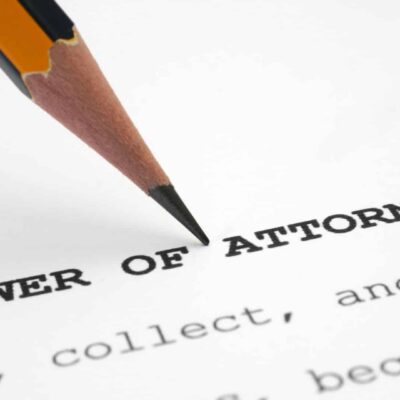When drawn up and registered correctly, a Lasting Power of Attorney can give you confidence that your affairs are in safe hands if there comes a point when you are not able to manage them yourself.
However, since the government’s Office of the Public Guardian online tool allowing people to create the documents themselves with no professional advice was launched in 2014, concerns have been raised over the ‘hidden cost of DIY LPAs’.
In this short blog, we will take a look at the pros and cons of registering a Lasting Power of Attorney by yourself.
What Is A Lasting Power Of Attorney?
A Lasting Power of Attorney (“LPA”) is a legal document created by a donor granting an attorney of their choosing authority to administer their affairs.
There are two types of LPA, one for Property & Financial Affairs and another for Health & Welfare.
An attorney can only act under a Health & Welfare LPA if the donor does not have mental capacity.
Until this time, they make their own decisions.
However, under a Property & Financial Affairs LPA, the donor makes an election for the attorneys to either only be able to act when they have lost capacity or, with consent, whilst the donor still has capacity.
A donor must have mental capacity, as defined by the Mental Capacity Act 2005, to make a Lasting Power of Attorney.
What Are The Risks Of DIY LPAs?
Registering a Lasting Power of Attorney online currently costs £82 (per LPA).
Apart from the time you will need to spend completing the form without legal assistance, that is certainly a cheaper alternative to paying a solicitor to help.
You can find out more about the processes and charges on the Government website.
However, there are some potential risks involved for those who decide to go it alone.
SFE (Solicitors for the Elderly) released a report following the launch of the online tool.
You can find it on the organisation’s resources page (search for SFE Report – The Risls of DIY LPAs).
The report raised the following:
The document may not be legal
The application forms themselves are complicated to complete, meaning it is easy to make mistakes when completing and signing the LPAs.
Unforeseen costs can be incurred when the documents are not created correctly, as they can be rejected by the OPG when sent for registration.
The number of rejected applications increased enormously following the introduction of the online tool.
The OPG then will make a further charge for re-submission, provided, of course, that you have been able to rectify the mistake.
The donor may have lost mental capacity in the meantime, in which case the documents cannot be corrected. An LPA is a deed that cannot be amended once signed; it must be recreated entirely and then resigned.
If there is a mistake that slips through the OPG’s rigorous checking procedures, the LPA could be rejected later on if that gets spotted.
It is expensive, time-consuming and stressful to rectify mistakes once an LPA has been spotted.
Higher risk of fraud or coercion
Legal professionals act as a safeguard for the donor when creating an LPA.
An individual can more easily become a victim of fraud or coercion, or the whole document can be falsified if this is done without legal advice.
Inadequate expression of wishes and preferences
Part of the legal advisor’s role when creating an LPA is discussing their options and choices with the donor.
Without this advice, an LPA can be made, which does not accurately reflect the way the donor would want their affairs to be handled.
This could result in attorneys being restricted in how they can act, or it could open the donor up to the risk of fraud and financial abuse.
It can be daunting to think about a scenario where you can no longer make decisions for yourself, and many people find that having this discussion with a person independent to their family is helpful.
Choosing A Solicitor For Lasting Powers Of Attorney
A study done by SFE in July 2016 showed that participants agreed that using a solicitor was by far the best option, with some commenting after seeing a professional that they wouldn’t have been able to make the same decisions about their wishes if they had gone down the DIY route.
This is a specialist area of law, and our Private Client team at Monan Gozzett LLP would recommend that everyone considering a Lasting Power of Attorney seek independent professional advice.
The above risks can be considerable and could be prevented by obtaining that advice.
Professionals can advise on the duties and responsibilities of attorneys and give tailored advice to your specific situation.
If you would like to find out more information about LPAs or about writing a Will , speak to our Private Client team today.
Please note that we are unable to offer free legal advice. Our client services team are here to take your case details and explain any costs involved
If you would like to speak to our expert legal team about this, or any related subject then please contact our team by phone on 0207 936 6329, Email or by completing our Quick Contact Form below.
Please note that we are unable to offer free legal advice. Our client services team are here to take your case details and explain any costs involved
